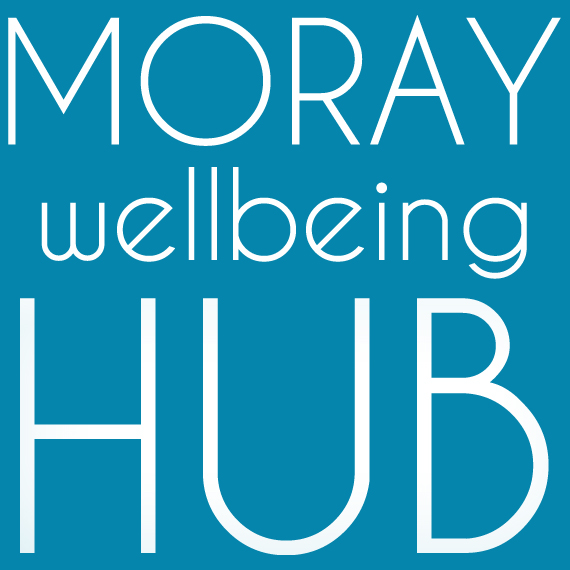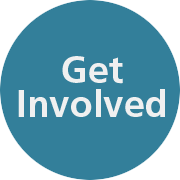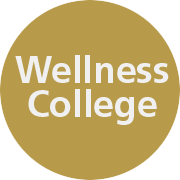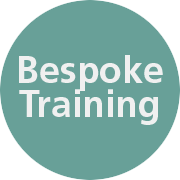Health and social care services across Scotland have been put under strain like never before, and now more than ever, it is vital that health and social care systems are organised to enable the best outcomes for people.
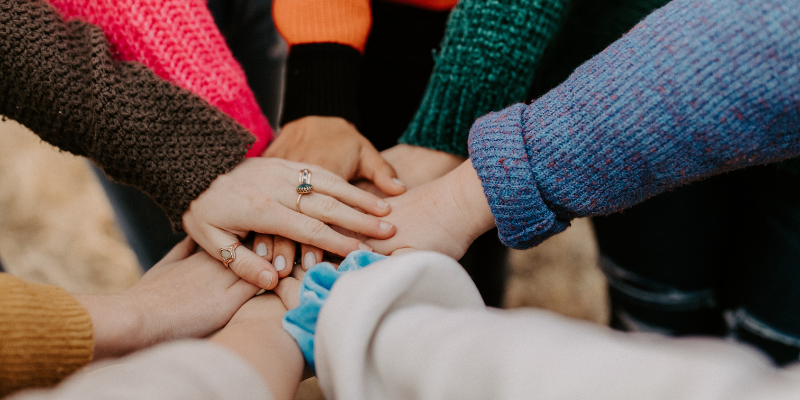
Healthcare Improvement Scotland’s Improvement Hub (ihub) is one organisation that is dedicated to supporting those delivering health and social care across Scotland to redesign and continuously improve services, to ensure they meet the changing needs of people.
Over the past 5 years, the ihub has been supporting the improvement and transformation of services through the deployment of technical skills (quality improvement and service design capabilities) and focusing on the vital role that relationships play in enabling change. As part of this approach, the ihub has embraced Human Learning Systems (HLS) – a new and different approach to managing public services – by allowing space and conversation to reflect on gathered insights and collaborative sensemaking around the implications of emerging practice.
As HLS can be applied at different scales, more localised organisations like Moray Wellbeing Hub CIC (MWH) are also adopting this approach. A grassroots, place-based organisation based in Moray – a rural area in North East Scotland – it emerged from peer-leaders who had lived experience of mental health challenges delivering their own support groups. There are now over 300 people who are part of its collective. It has experimented with a self-managing team model, aiming for self-sufficiency in delivering activity with statutory, voluntary and public partners, with the goal of helping people live more mentally healthy lives in Moray.
Learning is the strategy to create outcomes
Dr. Toby Lowe recently brought the two organisations together to share their experiences of using the HLS approach and explore how it is being applied at both a local and national level. As part of this discussion, he spoke to Heidi Tweedie, one of the directors of MWH, as well as Des Mccart, Senior Program Manager, and Diana Hekerem, Head of Transformational Redesign Support at the ihub. Toby explains:
“What we’ve seen across the organisations and places who are exploring an HLS approach is that people use learning as the strategy to achieve outcomes. By that, I mean everyone – volunteers, practitioners, managers, leaders – views their job as creating environments and opportunities to learn and explore together. Learning isn’t additional to the day job. Learning together is the day job.”
“I wanted to see how ‘learning as management strategy’ works at different scales – at a really local scale and at a national scale – so I thought I’d bring together some folks for a conversation.”
Being human
HLS starts with the principle of enabling public services to be more human and Heidi reflects that this is also at the heart of MWH’s approach.
“We are a collective of humans with many life experiences. We’ve all had our own challenges. For us at the hub, it’s important that we’re constantly doing reflective practice from a human level. Not just, what does this mean for my role, but what does this mean for me as a person. And making sure that we’re constantly asking about authenticity, mutuality and intentionality. We train people around those three core peer values, give them the skills, and keep pulling them back to those three things to make sure they can see it in every part of their work.
“We also use the CHIME framework, which stands for connectedness, hope and optimism about the future, identity, meaning in life and empowerment. For us, it’s very much about how can we empower humans to be humans.”
Des echoes this sentiment, he says “what we’ve ended up with, is a health and social care system, where we deliver care at home which is very prescribed. This leaves people working in this system thinking that ‘I can’t do that because it’s not my job’ or ‘I’ll do that, but I’ll get in trouble because I’ll be 5 minutes late to my next appointment.’ All these things mean that we sometimes end up with something a million miles away from caring for people.
“When actually, our system should enable people to act on what’s important to people and having that ‘what matters to you conversation’. I think, when care is at its best that is what it is. What I’m really interested in is, how do commissioners and others bring together public sector funding and capacity to allow some of those more human, relational things to happen.”
Learning on a local level
Though working at local and national levels, learning is key for both organisations. For MWH, the core of their approach to working with people is continuous learning and trust. By creating trusting relationships across a community, they have become “a resource” to the community in Moray. They are part of the infrastructure, rather than a service.
“We’re continually doing action-based learning. We’re always iteratively changing and growing, we’re organic in that way,” says Heidi. One of the tools that MWH uses is strength-based reflective practice sheets which take an appreciative inquiry approach to explore what worked well and what could be better next time. Using these, they ask the same questions of themselves as facilitators, mentors and coordinators as they ask of the people they work with. They look across the insights gathered and the different perspectives to see connections and themes in what’s working and what’s not.
Heidi describes further what some of their learning approaches look like on a day to day basis.
“For us as a team, every single day, we have a CHIME meeting. Everyone who is working for the hub in a formal role, paid or pro-bono, is welcome. The aim is that everyone goes around and says hello and shares something from their own lives. They say what they’re doing that day, and close by saying how it’s been to connect with everyone. It’s little very practical things that bridge the human-ness, which help you flow into your day of work and inspire each other to say ‘oh you’re doing that, what’s happening with that? Can I get a side conversation?’ That’s part of how we learn.
“It also requires people to do a bit of reflective practice. Sometimes that means someone might say ‘well actually I felt really crap this morning and then I saw you lot and you told me that joke, and it made me laugh and now I’ve remembered why I am doing what I do’. So, to me, that is a microcosm of absolutely every single activity we do. There’s always got to be this flow from the individual human, back into the collaborative with others, then back out into the next space.”
Learning at a national level
For the ihub, COVID-19 created an urgent need for public services to switch to a learning approach. At the initial stage of the COVID-19 response, the ihub developed a learning system to understand how the health and social care system in Scotland was responding to the pandemic and to identify key learning for the future.
As a national body supporting the delivery of higher quality health and care for everyone in Scotland, the national learning system that the ihub convened enabled people from across Scotland to connect. The ihub was able to support established and emerging networks with the gathering of insights, making sense of those insights, and then turning them into actionable knowledge and supporting the spread of that learning across Scotland.
The following key themes were identified as being critical to enabling services to respond effectively to the pandemic:
- Importance of trusting relationships
- Role of communities
- Technology-enabled services
Des explains further, using an example from the ihub’s work in East Ayrshire:
“We were asked by the partnership there to create the space for conversation, sense-making and shared learning for a diverse group of people coming from different health and social care roles – there were strategic planners there, carer reps, and others.
“What struck me was that over time, we have been able to build a safe space so that they were comfortable in the room to talk to each other openly. The positivity that then came, that was because they recognised that these have been really challenging times, but we’ve got through it because we can rely on each other.
“We’ve got this community in East Ayrshire, whose jobs are all about caring for people and making sure that others are ok, and what we’ve tried to do is capture the learnings from that and the conversations. They’ve got these vibrant communities in East Ayrshire now, because it’s something they’ve really invested in. When I say ‘they’, I mean everyone’s invested, it’s not just the public sector that has invested, but everybody has invested time in it and building the relationships. I think that is something really important that as a national organisation we can do to help with the facilitation of creating the right space and environment for conversations at a local level.
Reflecting on some of the ihub’s own learning around technology, Diana says “there have been some great benefits to working digitally; it would be hard to connect with lots of people otherwise if it wasn’t thanks to digital working. Digital has enabled much more diversity in our learning systems, from different organisations and geographies, than we’ve ever been able to achieve in a physical form.
“But I also know it has deficits, particularly when it comes to being human and seeing what matters to people. For example, in our own work, as I am not physically in the same space as the team, I can lose a sense of where people are at, and what’s going on for them. That’s where our weekly check-in with the team is important – both making the time for it and the approach we take. It’s whatever people want to bring, and our way of bringing back some of those human things.” This balance can be seen in the community case studies the ihub has published, where embracing the opportunities from greater technology is balanced with both keeping people and what matters at the centre and ensuring that organisations are learning with people what works for them.
Creating better outcomes by connecting people to learn together
Considering HLS and how it has impacted ways of working at MWH, Heidi says “I’ve found that what it really creates for me is the outcomes of positive strengths-based change.
“Using this framing it’s clear to see that it’s about how you treat people, not what you do, that makes people feel better. That gives them more life and gives them what they want, something we’ve been focused on since we began. The biggest measurement that we have is that we feel it. We don’t have people saying ‘I’m just not well enough’ and backing off from others in the typical way when they have a dark day. They still want to come and volunteer with us, to join a virtual space, call someone, or reach out. Because in that space there are people that they care about and care about them, regardless of what they can provide toward any target, they have inherent value by being. They want to connect, they get something from it, they get something intangible. That is ultimately what we’re talking about here, about improving the quality of life.”
The ihub has an important role to play in supporting learning with places and communities at a local level. “It could be something as simple as when we bring people together for a webinar or connecting someone from Elgin to someone from East Ayrshire, and helping them feel more inspired to be able to go away and start that work of transformation,” Diana says. The ihub learning systems can also support in creating the conditions needed for transformational change.
“I can see where places and teams have made a culture change. By understanding what good looks like through the lens of the Human Learning Systems, it supports leadership to think about planning for quality outcomes. So you don’t define quality in before listening and not placing learning at the heart of the approach. You learn. And all that learning with, brings the richness and success in transformation.”
This is paying dividends. While the ihub will continue to build, test and adapt its approach, the value of a national body convening a space for shared learning on emerging practice is now being formalised and embedded into all ihub quality improvement and service redesign programmes. This will hopefully lead to improved health and social care services, and ultimately and most importantly, better outcomes for people across Scotland.
Click here to read about the Moray Wellbeing Hub HLS Case Study
If you’d like to take a deeper dive into how HLS is being applied by Healthcare Improvement Scotland you can listen to this podcast which features Toby and Diana in conversation with The Institute for Research and Innovation in Social Services (Iriss).
